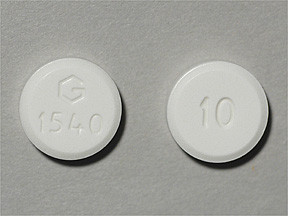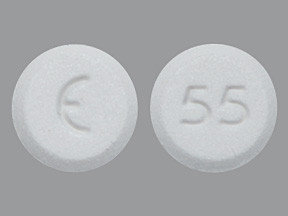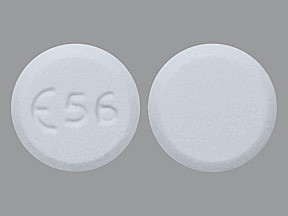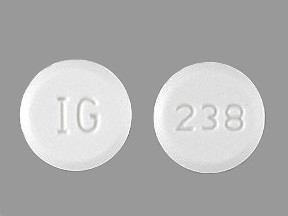AMLODIPINE - ORAL
PHONETIC PRONUNCIATION: (am-LOE-di-peen)
COMMON BRAND NAME(S): Norvasc
GENERIC NAME(S): amlodipine besylate

Medically reviewed by Matt Sommers, PharmD. Last updated on September 01, 2023.
Uses
USES: Amlodipine is used with or without other medications to treat high blood pressure. Lowering high blood pressure helps prevent strokes, heart attacks, and kidney problems. Amlodipine belongs to a class of drugs known as calcium channel blockers. It works by relaxing blood vessels so blood can flow more easily. Amlodipine is also used to prevent certain types of chest pain (angina). It may help to increase your ability to exercise and decrease the frequency of angina attacks. It should not be used to treat attacks of chest pain when they occur. Use other medications (such as sublingual nitroglycerin) to relieve attacks of chest pain as directed by your doctor.
How to use AMLODIPINE - ORAL
HOW TO USE: Take this medication by mouth with or without food as directed by your doctor, usually once daily. The dosage is based on your medical condition and response to treatment. Your doctor may gradually increase your dose. Follow your doctor's instructions carefully. Use this medication regularly to get the most benefit from it. To help you remember, take it at the same time each day. It is important to continue taking this medication even if you feel well. Most people with high blood pressure do not feel sick. If used for angina, this medication must be taken regularly to be effective. It should not be used to treat angina when it occurs. Use other medications (such as sublingual nitroglycerin) to relieve an angina attack as directed by your doctor. Consult your doctor or pharmacist for details. Tell your doctor if your condition does not improve or if it worsens (for example, your blood pressure readings remain high or increase, chest pain continues or worsens).
Side Effects
SIDE EFFECTS: Dizziness, lightheadedness, swelling ankles/feet, or flushing may occur. If any of these effects persist or worsen, tell your doctor or pharmacist promptly. To lower your risk of dizziness and lightheadedness, get up slowly when rising from a sitting or lying position. Remember that your doctor has prescribed this medication because he or she has judged that the benefit to you is greater than the risk of side effects. Many people using this medication do not have serious side effects. Tell your doctor right away if any of these unlikely but serious side effects occur: fast/irregular/pounding heartbeat, fainting. Although this medication is effective in preventing chest pain (angina), some people who already have severe heart disease may rarely develop worsening chest pain or a heart attack after starting this medication or increasing the dose. Get medical help right away if you experience: worsening chest pain, symptoms of a heart attack (such as chest/jaw/left arm pain, shortness of breath, unusual sweating). A very serious allergic reaction to this drug is rare. However, get medical help right away if you notice any symptoms of a serious allergic reaction, including: rash, itching/swelling (especially of the face/tongue/throat), severe dizziness, trouble breathing. This is not a complete list of possible side effects. If you notice other effects not listed above, contact your doctor or pharmacist. In the US - Call your doctor for medical advice about side effects. You may report side effects to FDA at 1-800-FDA-1088 or at www.fda.gov/medwatch. In Canada - Call your doctor for medical advice about side effects. You may report side effects to Health Canada at 1-866-234-2345.
Precautions
PRECAUTIONS: Before taking amlodipine, tell your doctor or pharmacist if you are allergic to it; or to other dihydropyridine calcium channel blockers (such as nisoldipine, nifedipine) or if you have any other allergies. This product may contain inactive ingredients, which can cause allergic reactions or other problems. Talk to your pharmacist for more details. Before using this medication, tell your doctor or pharmacist your medical history, especially of: a certain structural heart problem (aortic stenosis), very low blood pressure, liver disease. This drug may make you dizzy. Alcohol or marijuana can make you more dizzy. Do not drive, use machinery, or do anything that needs alertness until you can do it safely. Limit alcoholic beverages. Talk to your doctor if you are using marijuana. Before having surgery, tell your doctor or dentist about all the products you use (including prescription drugs, nonprescription drugs, and herbal products). Older adults may be more sensitive to the effects of this drug, especially dizziness. During pregnancy, this medication should be used only when clearly needed. Discuss the risks and benefits with your doctor. This drug passes into breast milk. Consult your doctor before breast-feeding.
Interactions
DRUG INTERACTIONS: Amlodipine is not recommended for use with simvastatin doses higher than 20mg. Drug interactions may change how your medications work or increase your risk for serious side effects. This document does not contain all possible drug interactions. Keep a list of all the products you use (including prescription/nonprescription drugs and herbal products) and share it with your doctor and pharmacist. Do not start, stop, or change the dosage of any medicines without your doctor's approval. Some products have ingredients that could raise your blood pressure. Tell your pharmacist what products you are using, and ask how to use them safely (especially cough-and-cold products, diet aids, or NSAIDs such as ibuprofen/naproxen).
Overdose
OVERDOSE: If someone has overdosed and has serious symptoms such as passing out or trouble breathing, call 911. Otherwise, call a poison control center right away. US residents can call their local poison control center at 1-800-222-1222. Canada residents can call a provincial poison control center. Symptoms of overdose may include: fainting, severe dizziness.
Images

- color
- white
- shape
- round
- imprint
- G 1540, 10

- color
- white
- shape
- round
- imprint
- G 1540, 10

- color
- white
- shape
- round
- imprint
- G 1540, 10

- color
- white
- shape
- round
- imprint
- G 1540, 10

- color
- white
- shape
- round
- imprint
- G 1540, 10

- color
- white
- shape
- round
- imprint
- logo, 55

- color
- white
- shape
- round
- imprint
- logo and 56
Reviews
Faq for AMLODIPINE - ORAL
Amlodipine is used to treat high blood pressure (hypertension) and chest pain (angina).
Amlodipine is a calcium channel blocker that works by relaxing and widening the blood vessels, making it easier for the heart to pump blood and reducing the workload on the heart.
Common side effects of Amlodipine may include swelling in the ankles or feet, dizziness, flushing, headache, and fast or irregular heartbeat. Consult your doctor if you experience any severe or persistent side effects.
No, you should not stop taking Amlodipine without consulting your doctor. Suddenly discontinuing the medication can cause your blood pressure to spike again. Your doctor will advise you on the appropriate dosage and duration of treatment.
Amlodipine may interact with certain drugs, including other blood pressure medications, some antibiotics, antifungal medications, and grapefruit juice. Inform your doctor about all the medications, supplements, or herbal products you are taking to avoid any potential interactions.
Amlodipine is generally considered safe to use during pregnancy, but you should discuss its potential risks and benefits with your doctor. It may pass into breast milk, so consult your doctor before using Amlodipine while breastfeeding.
Amlodipine is not typically associated with drowsiness. However, some individuals may experience dizziness or light-headedness, especially when standing up quickly or during the initial period of taking the medication.
Amlodipine can be taken at any time of the day, but it is recommended to take it at the same time each day to help you remember. Follow your doctor's instructions for the correct dosage and timing.
Amlodipine is approved for use in children aged 6 to 17 years for certain conditions. Consult a pediatrician for proper dosage and suitability for your child.
Disclaimer
IMPORTANT: HOW TO USE THIS INFORMATION: This is a summary and does NOT have all possible information about this product. This information does not assure that this product is safe, effective, or appropriate for you. This information is not individual medical advice and does not substitute for the advice of your health care professional. Always ask your health care professional for complete information about this product and your specific health needs.

No Reviews Yet